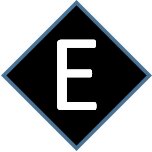Best Assault & Battery Lawyers in Netanya
Share your needs with us, get contacted by law firms.
Free. Takes 2 min.
List of the best lawyers in Netanya, Israel
About Assault & Battery Law in Netanya, Israel
Assault and battery are serious criminal offenses in Netanya, Israel. Under Israeli law, assault typically refers to any act that causes another person to fear imminent harm or bodily injury, while battery involves the actual physical act of causing harm or offensive contact. Both offenses carry significant legal consequences ranging from fines and community service to imprisonment. These laws are designed to protect individuals from violence and maintain public order within the city. If you find yourself involved in an incident related to assault and battery, it is important to understand your rights and obligations under the law.
Why You May Need a Lawyer
People seek legal help for assault and battery cases in Netanya for various reasons. Common situations include being accused of assault or battery, being the victim of such an offense, false accusations, self-defense claims, or misunderstandings that escalate into legal disputes. A lawyer can provide invaluable guidance through the investigation process, represent you in court, help negotiate settlements, and ensure that your side of the story is fully heard. Legal representation is particularly important because assault and battery charges can have long-term consequences on your record and personal life.
Local Laws Overview
In Netanya, as in the rest of Israel, assault and battery are governed by the Israeli Penal Code. Assault can be charged even if there is no physical contact, such as threatening gestures or words that create a fear of harm. Battery involves any unauthorized physical contact, even if there is no visible injury. Aggravated forms of assault, such as those involving weapons, multiple offenders, or attacks against vulnerable groups, attract harsher penalties. Self-defense is recognized under Israeli law but must be proportionate to the threat faced. It is also important to note that minors and individuals with disabilities receive additional legal protection. Immediate reporting to the authorities is encouraged, and police investigations are thorough to determine the facts of each incident.
Frequently Asked Questions
What is the difference between assault and battery in Netanya, Israel?
Assault refers to an act that makes someone fear imminent harm, while battery is the actual infliction of unlawful physical force. Both can be prosecuted separately or together depending on the incident.
What penalties could I face if convicted of assault or battery?
Penalties vary depending on the severity, circumstances, and prior convictions. They range from monetary fines and community service to several years of imprisonment, especially in cases involving serious injury or aggravating factors.
Can I claim self-defense in an assault and battery case?
Yes, Israeli law allows self-defense claims, but the force used must be reasonable and proportionate to the threat. Excessive force may result in criminal charges despite the initial justification.
What should I do if I am falsely accused?
You should contact a qualified criminal defense lawyer immediately. Collect any evidence that supports your innocence, such as witness statements or video footage, and avoid discussing the case with the other party or on social media.
How soon should I report an assault or battery?
You should report the incident to the police as soon as possible. Prompt reporting can help preserve evidence and facilitate a stronger investigation.
Is mediation available for assault and battery cases in Netanya?
In some cases, especially minor or first-time offenses, mediation may be suggested. This is an alternative to court where both parties attempt to resolve the conflict with the help of a neutral mediator.
How does the process work once I report an offense?
After you file a complaint, the police will investigate by interviewing witnesses and gathering evidence. If sufficient evidence exists, the case may be transferred to the prosecution for charges. Legal proceedings and trials follow if the case is not resolved through mediation or dismissed.
Can a victim of assault or battery claim compensation?
Yes, victims can seek compensation through civil claims for medical expenses, emotional distress, and other damages resulting from the incident.
Are there legal differences for juveniles accused of assault or battery?
Yes, the law provides special procedures and protections for minors. Juvenile cases are handled in family courts, which focus on rehabilitation rather than punishment. Penalties may differ from those for adults.
Should I speak to the police without a lawyer?
It is generally advisable to consult a lawyer before making any statements to the police. A lawyer can ensure your rights are protected and advise you on how to proceed.
Additional Resources
For additional guidance, you may reach out to local agencies in Netanya such as the Netanya Police Department, the Ministry of Justice's Legal Aid Division, or local victim support services. The Israeli Bar Association also offers information and referrals. Social services in Netanya provide assistance to victims and can direct you to counseling or shelter if needed.
Next Steps
If you need legal assistance regarding assault and battery in Netanya, consider the following steps. First, document all details related to the incident, including dates, times, names, and any evidence such as photos or messages. Seek immediate medical attention if you are injured. Report the incident to the police and obtain a copy of your statement. Contact a qualified criminal defense or victim rights lawyer who understands the local legal landscape. They can help you navigate the process, protect your rights, and represent your interests in negotiations or court. Acting promptly and seeking professional guidance can make a significant difference in the outcome of your case.
Lawzana helps you find the best lawyers and law firms in Netanya through a curated and pre-screened list of qualified legal professionals. Our platform offers rankings and detailed profiles of attorneys and law firms, allowing you to compare based on practice areas, including Assault & Battery, experience, and client feedback.
Each profile includes a description of the firm's areas of practice, client reviews, team members and partners, year of establishment, spoken languages, office locations, contact information, social media presence, and any published articles or resources. Most firms on our platform speak English and are experienced in both local and international legal matters.
Get a quote from top-rated law firms in Netanya, Israel — quickly, securely, and without unnecessary hassle.
Disclaimer:
The information provided on this page is for general informational purposes only and does not constitute legal advice. While we strive to ensure the accuracy and relevance of the content, legal information may change over time, and interpretations of the law can vary. You should always consult with a qualified legal professional for advice specific to your situation.
We disclaim all liability for actions taken or not taken based on the content of this page. If you believe any information is incorrect or outdated, please contact us, and we will review and update it where appropriate.










